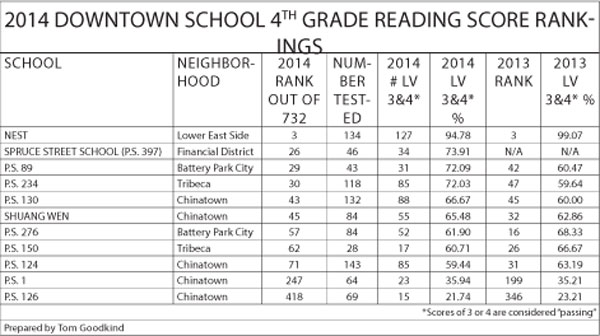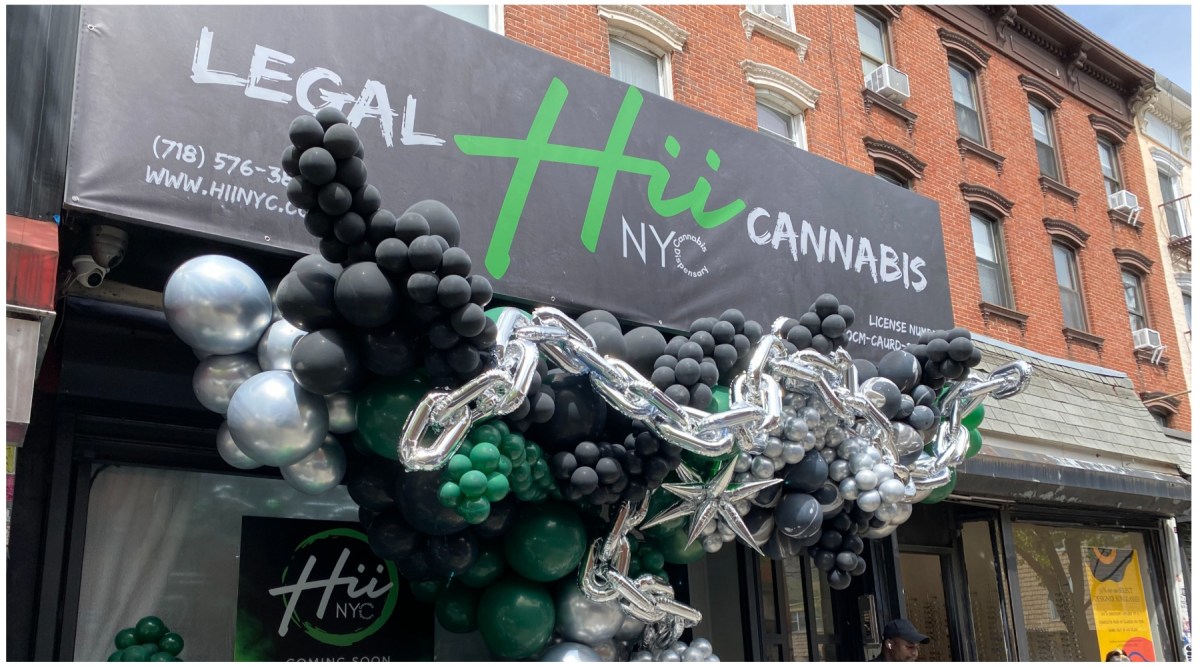BY DUSICA SUE MALESEVIC | “If this bill does not pass, I will pass away.”
Nicholas Poliseno uttered this statement calmly to Downtown Express after a press conference last week where elected officials pushed for the permanent reauthorization of the Zadroga Act, the 9/11 health bill which expires for patients in October.
Poliseno, a Con Edison worker who helped restore power to Lower Manhattan after the collapse of 7 World Trade Center and its substation, worked by Ground Zero for a year after 9/11.
As a result, Poliseno has been diagnosed with several diseases, including multi-organ sarcoidosis, which has spread to eight parts of his body, he said. For just one of his many medications, it costs $1.1 million yearly, he said.
Poliseno, who receives treatment under the act and is now the mayor of a New Jersey town, joined U.S. Representatives Carolyn Maloney, Jerrold Nadler and Peter King as they pushed for the act’s permanent renewal.
“There is no way I would able to afford this,” he told the crowd gathered near 7 W.T.C., which was rebuilt in 2006. “We need to know that we will be taken care for the service that we gave.”
Congress passed the James Zadroga 9/11 Health and Compensation Act in 2011 and it is comprised of two parts: the World Trade Center Health Program, which provides medical services for over 70,000 responders and survivors, and the reopened September 11th Victim Compensation Fund.
 In New York, 47,462 responders — fire, police and other emergency personnel — and around 6,810 survivors — area residents, workers and children — receive care from the program, according to Citizens for the Extension of the James Zadroga Act.
In New York, 47,462 responders — fire, police and other emergency personnel — and around 6,810 survivors — area residents, workers and children — receive care from the program, according to Citizens for the Extension of the James Zadroga Act.
The Victim Compensation Fund was initially created shortly after the attacks. It was reopened as part of the Zadroga Act and the total value of compensation is over $1.3 billion. So far 11,770 claimants are eligible for compensation claims, according to fund administrators. The fund is capped at $2.775 billion and as of March this year $1 billion has been awarded, according to the Congressional Research Service.
Nadler, whose district includes Lower Manhattan, said, “We will never stop fighting.”
Over 33,000 first responders and survivors have an injury or illness believed to be related to the attacks or its aftermath and over two thirds of them have more than one disease.
King said, “This is beyond debate…I hope we never have to be here again.”
The passage of the Zadroga Act was splintered by bipartisanship and some credit Jon Stewart, the former “Daily Show” host, for helping getting it through four years ago. King, a Republican, and Nadler and Maloney, both Democrats, are leading the push this time, introducing the reauthorization act in the House.
Sen. Kirsten Gillibrand has pushed for the renewal in the Senate. According to Gillibrand’s Twitter account, Stewart will join survivors in Congress next week to urge for the act’s renewal. During a “Daily Show” appearance this summer, Gillibrand said there’s not much resistance to extending the act temporarily, but making it permanent will be a challenge.
The World Trade Center Health Program is set to expire this October and the Victim Compensation Fund will expire in October of next year.
Joe Zadroga also spoke at the press conference. His son James, a N.Y.P.D. police officer who died from a respiratory disease caused by participating in the recovery effort after Sept. 11, is who the bill is named after.
Zadroga, his voice rising, said he would go to Washington if need be to let politicians who might block the effort know “what it is like to watch your son die.”

















